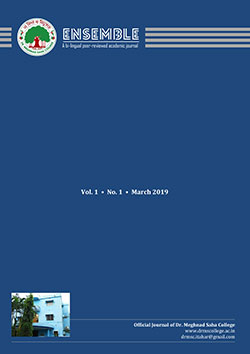From English to ‘englishes’: Appropriating Language and Narration in Arundhati Roy’s The God of Small Things
Abstract
The paper examines the problematics of the splintering of English into “englishes” in the postcolonial context and deciphers how the postcolonial exegetical tools have been employed by the Indian English novelists of the late twentieth century. The writers have been successful in creating a new identity by adapting their own linguistic, cultural and sociological contexts in their writings. The new-words which have beeninvented, borrowed, or however devised in any given culture have their own resonances and their own connotations.The need to preserve one’s identity and culture to resist the hegemony of globalization is one of the most pressing concerns of these writers. To elaborate upon this, the paper will discuss the narrative technique and language as creatively employed by Arundhati Roy in her debut novel,The God of Small Things.It will analyse how the text succeeds in “writing back to the empire”through the linguistic processes of appropriation and abrogation. Roy has freed herself from the shackles of traditional stiffness in the usage of English and has in the process created a new ‘english’ to absorb the nuances of her region.Small Things has been applauded for its fresh innovative language, its narrative energy and its willingness to raise questions that are socially relevant.
Keywords: English, english, appropriation, innovative language, narrative, regional nuances
https://doi.org/10.37948/ensemble-2021-0301-a021
Views: 735



